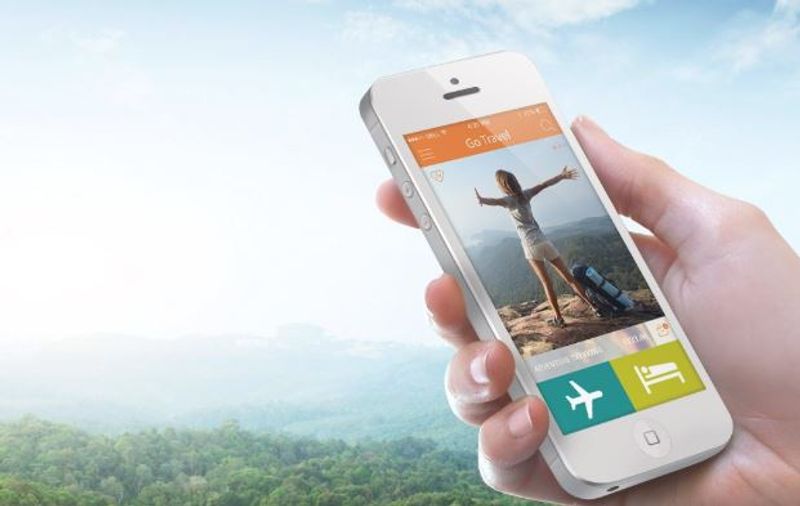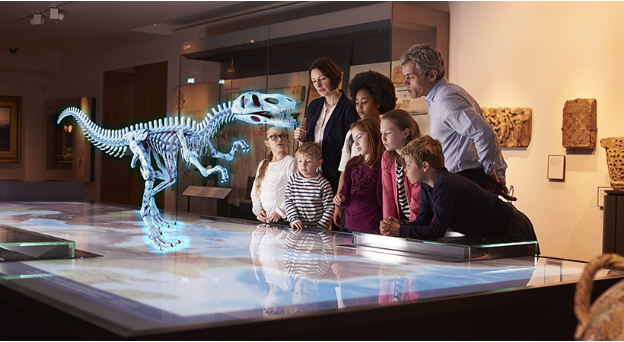Why Mobile Integration is Important for Travel Industry Professionals
Angela Hassassian
Mar 02, 2019 - 8 min read

It certainly isn’t news that the use of mobile devices is steadily increasing, and we have touched briefly upon the subject in a previous post about Tourism and V-Commerce, but it turns out that the travel and hospitality industry is coming up short when it comes to embracing these changes, making the most of and capitalizing on the data. The unavoidable truth is, the travel industry today needs to become more mobile to thrive. Tourists are beginning to expect to be able to experience tourism on the go and catching the right micro-moments are essential as they are shaping how consumer conversions are being made. Travel companies are in dire need of getting with the times, engaging with their customers in real-time, communicating with them in the moment.
Staying ahead of technology is an absolute necessity, especially for travel agents, tour operators, and product and service providers who need to start offering potential customers with an opportunity to complete bookings effortlessly in mobile. According to Google, 70% of travelers who own a smartphone have done travel research using their mobile phones. 50% of millennial travelers have discovered a new travel company while doing their research on their mobile phone. According to the latest Travel Flash Report by Criteo, over a third of people now use a mobile device to book a hotel room. To top it off, Google has changed its approach from rewarding sites for mobile-friendliness to a mobile-first approach, which gives you even more motivation to hop on the bandwagon if you haven’t done so already.
Mobile For Engagement
One of the major perks of going mobile is that it increases your capacity for being more accessible to and engaging with your customer base. You want to be a source for reliable and easy to obtain information which will support all of their travel needs. This is the pathway towards creating long-lasting, profitable relationships with your clientele. The thing to keep in mind is, a number of travel decisions are made on the fly. For example, a traveler may be deciding during their continental breakfast at a hotel in Belgium to book a chocolate factory tour for the same day. In 2016, over 148 million travel bookings were made via either mobile apps or websites, and 65% of hotel reservations were completed using a smartphone. Furthermore, the majority of those hotel reservations were completed on a same-day basis.
There is a noticeable shift in the habits and thinking processes of travelers, whereby the time span between planning a trip and booking one is getting increasingly narrow. Going mobile is key to interacting with travelers so that travel professionals and companies can reach them during those crucial moments of spontaneity. And while it takes only a little bit of investment to tap into these resources, there is an undeniable gap between what is being supplied by industry professionals and what is being demanded by the consumers. More and more, customers want the booking process to be as flexible as they are, which means that companies need to operate in a much more efficient and streamlined manner to meet their needs! One major step any company can make to that end is to be more responsive.
Marketing on Mobile to Gain Customer Loyalty
Along with accessibility and responsiveness, customers want content-rich information and guidance that can support them throughout their travel, in real-time. 360 Stories has already shared how important it is to gain customer loyalty in terms of marketing your product/services. Using the mobile experience opens many doors to increase the potential for this greatly sought after loyalty. While many of the strategies mentioned below can be done on a desktop format, the results to be gained from adapting them to a mobile format are simply amplified. Making use of the right combination of review sites and social media platforms, you can get the kind of exposure and advertising you are looking for, increase your brand awareness and increase the number of potential customers by making the most out of the sheer power of communication. Encourage your customers to share their experiences with their friends and gradually build a foundation of trust and loyalty.
In a report by EyeforTravel, 183 respondents from the travel industry were asked about what aspect of the industry worries them the most. 74% of the respondents answered, customer loyalty. And it’s no wonder, as customer loyalty is viewed not only as a priority but as an important asset. It is a huge factor in any company’s marketing strategy. So what do companies do to gain their customers’ trust and loyalty? Well, for one, they open the gates of direct communication across different platforms, including but not limited to social media. They make targeted offers and promotions whereby a conversation can be opened with their customers. They provide the kind of relevant information the customers really want, at competitive prices that their customer can trust and feel confident about. They provide customers with a mobile user experience that doesn’t yield to what they might find on a desktop. They also promote a penalty-free cancellation policy and best prices guaranteed whenever possible. Gaining customer trust and loyalty is no easy feat, and there are many theories and methods out there, the important thing is to recognize how essential it is and take some action.
Steps to Consider
1. Mobile Optimization
Those who optimize their businesses for mobile, win, period. This means making your website mobile-optimized, allowing it to fit multiple screen types in a way that all the content is shown readily and properly without any kind of zooming and rotating. Customers have no patience or trust, for that matter, towards websites that aren’t optimized for a mobile experience, and will opt for any of your mobile-ready competitors. And as we’ve already mentioned, mobile-responsive websites rank much better in Google’s search results.
2. Mobile Performance and Speed
Another aspect to consider is how your website runs. Is it cluttered? Is the content heavy and slow to load? You can test the speed and performance of your website using Google’s Test My Site tool to see where you stand. If there are improvements that need to be made, do them quick, because according to Google, 54% of leisure travelers and 69% of business travelers say that a poor experience in terms of usability is one of the main reasons customers will book on a different device! Need more proof? According to Kissmetrics, 40% of people will ditch a website that takes longer than three seconds to load. It’s absolutely in your best interest that your website delivers a seamless user experience, with easy to fill in booking forms, simple navigation and no clutter. Let’s repeat, we need websites that are easy to navigate, load fast, and have a user-friendly layout.
3. Mobile Marketing and Timing
As with anything, timing is everything. Did you know that 80% of travelers book activities and experiences within 30 days of their travel date? Of these, 50% make those bookings within a week of travel! More still, 65% of travelers book hotels reservations for the same day through a mobile device. And one of the biggest challenges that travel agencies and industry professionals face is connecting with potential clients at the right time. If the goal is to generate new revenue on a variety of products and services, including flights, accommodation, tours, food, transportation activities etc., then you should optimize your mobile site, so that it gives them all their options, on mobile, when they want it.
4. The Use of Mobile Applications
Many companies are opting to work with different applications, as that is becoming a growing format for reaching their customers. 360 Stories is also taking this approach with our own VR app, allowing community members to book in realtime what they experience through our platform. The logic is simple, we show our community a unique perspective of different destinations across the world. We include everything from attractions, museums, restaurants, bars, entertainment etc., with stories that include both pictures as well as unique and interesting descriptions. After enjoying a personal, virtual tour of hundreds of places to see and things to do, enriched with stories and guides contributed by other community members, users are given the opportunity to book what they like, on the spot! It’s this kind of convenience is essential to success.
5. Understand the Mobile Generation
The bottom line is pretty clear at this point, if you don’t have a robust mobile platform and presence, you are missing out on a huge segment of today’s travel industry. It’s simple really, where do your potential customers spend their most time? Ding, ding, ding! Their mobile devices. So if 83% of travel industry companies are stuck working with traditional methods of reaching their target audience, those digital users are not able to encounter their products and services online! Try to understand the digital generation more. Here are some quick facts to think about: 71% of mobile users in the US between the ages of 18-29 use a mobile personal assistant (think Okay, Google or Hey, Siri).” 75% of millennials would rather text than call, and they spend more time on their phones than all of their other devices combined. To that end, old school SMS marketing might yield high success, as 96% of SMS messages are read, most of which within 3 minutes from being sent! With ever-evolving technology being made at our disposal, things that strike us as still fairly new such as Augmented Reality, Virtual Reality and Near Field Communications are innovations that we need to start implementing in our marketing strategies. But first, go mobile!


